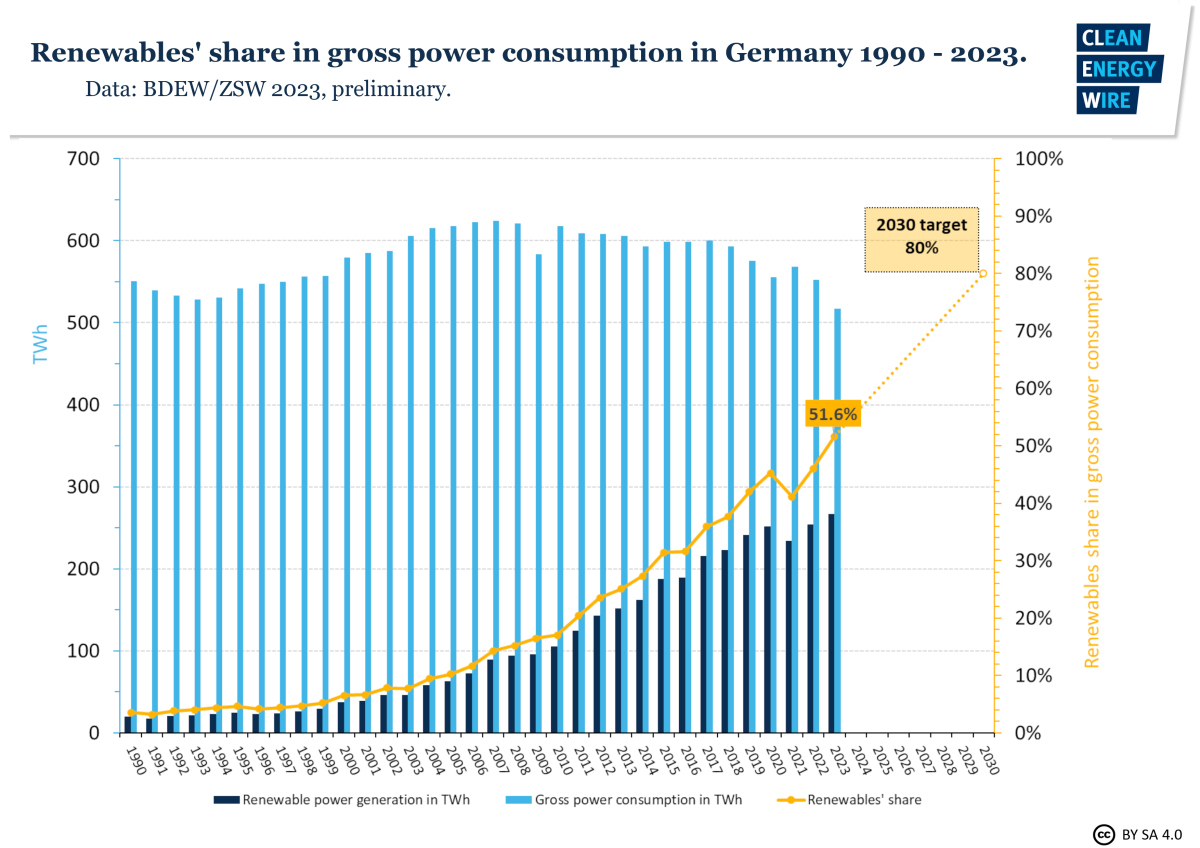Renewables cover more than half of Germany’s electricity demand for first time this year
Clean Energy Wire
Germany has generated more than half of the electricity it used this year with renewable energy for the first time, according to preliminary calculations by the Centre for Solar Energy and Hydrogen Research Baden-Württemberg (ZSW) and utility association BDEW. “Renewable energies will have covered almost 52 percent of gross electricity consumption in 2023,” the organisations said in a press release. “This means that the share has risen by five percentage points compared to the same period last year and is above the 50 percent mark for the first time for a full year.” Germany’s renewables share was 46 percent in 2022. Both a decrease of overall electricity consumption and an increase in absolute renewables production – which rose six percent to an all-time high of 267 TWh - pushed up the share of renewable electricity.
Germany aims to have a renewable electricity share of 80 percent by 2030 and a largely decarbonised power supply by 2035. "The figures show that we are on the right track. Many people once thought that renewables would only account for a single-digit share of electricity consumption, but today we use more electricity from renewables than from conventional sources and have our sights firmly set on 100 percent renewables," said BDEW head Kerstin Andreae, who called for the removal of bureaucratic hurdles that slow down the renewables roll-out. The country’s environment agency UBA also said the targets were challenging. “According to current estimates, renewable electricity generation must increase to around 600 terawatt hours [by 2030] and thus more than double in order to cover the increasing demand for electrification in the heating and transport sectors,” UBA said.
ZSW and BDEW said the share of renewable electricity was particularly high in July (59%), May (57%) and October and November (55% each). In June, electricity generation from photovoltaics reached a new all-time record of 9.8 terawatt-hours (TWh), while electricity generation from onshore wind energy reached a new record of 113.5 TWh for the year as a whole, they added. Solar and wind energy contributed around 75 percent of Germany’s renewable electricity, with the remainder covered by biomass, hydropower, and a small share of geothermal plants.


